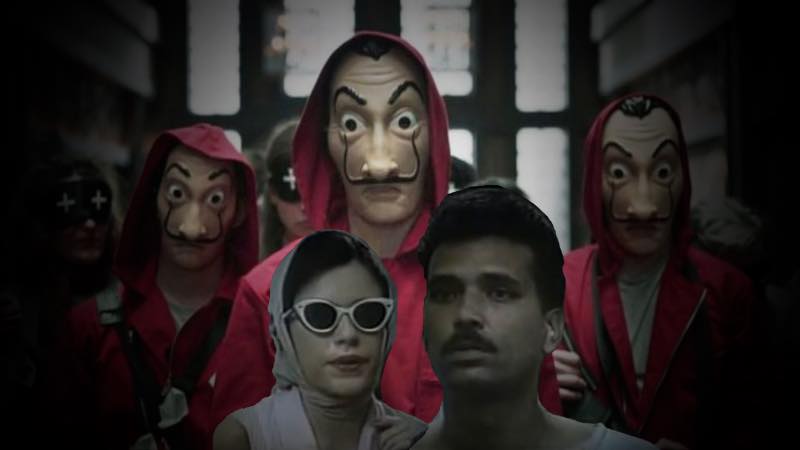
Cubanet, Miriam Celaya, Havana resident currently visiting the US, 15 January 2020 — A new year has just begun and “its Cuban peculiarity” is already being revealed to us in all its glory — that wicked vice of losing ourselves in sterile digressions around minutiae that characterizes us so much — elevating to the category of “event” what hardly deserves the nickname of scam. Thus, while there are events in the world whose deep political implications occupy and concern citizens, institutions and governments, we Cubans remain tied to what seems to be our irreversible village destiny.
Not merely satisfied with the fractures and polarizations harvested after 61 miserable Januarys, the natives of the captive Island have found a new reason these days for vernacular discord. And what is worse, in the absence of anything more substantial, the dispute this time revolves around what until today remains a cybernetic fable: the group so-called Clandestinos.
Among the apologists and the detractors of these new social media stars, insults have rained and passions have been exacerbated. But what really is Clandestinos beyond the uncertain images of red stained busts and other quite questionable presentations in terms of authenticity? Who can provide evidence that it is a “group” and not a manipulation by the media of uncertain origin or a colossal tease? What bases of reality hold so much hectic patriotism and so much confidence of its cyber-followers? So far, none of these questions has any convincing answer.
That is why the foolish enthusiasm unleashed in the networks is so much more unfathomable, where simply inquiring over the existence or not of these imaginary (and imaginative, we must admit) rebels, whose righteous and audacious actions have filled so many hearts with hope, is sufficient reason to be mistreated and even accused of being an agent of the Castro regime: the explosion of Cuban idiosyncrasy in its purest state.
Because Clandestinos, in addition, has that charm of a soap opera and of theatrical drama heroes that hypnotize the masses: masked men who act secretly against the villain under cover of night, video messages with a mysterious central character wearing a ski mask, daredevils in paint-splattered busts of Martí and apparently also in communist screens, and above all, a profusion of labels in social networks with libertarian cyber-concepts. And according to the most enthusiastic fans, these are “actions that have the dictatorship in check.”
In summary, it turns out that, after decades of resistance and the efforts of several generations of opponents who have suffered repression, harassment and banishment as a result of their direct confrontation without masks against the Castro gang, the final solution for Cubans has magically appeared with an intangible prodigy that nobody knows either its form or its content, but one which has, nevertheless, managed to conceive an extraordinary capital of faith, especially among certain groups of exiles.
Who could have told us that a few disguises and a bit of red paint would be enough to make the Cuban autocracy tremble? In fact, the heroes of the moment feel so imbued with their leadership that they have even disseminated an Instruction Manual on the internet that summarizes the key to success in their “fight”, the cornerstone that will boost the Cubans to end six decades of the Castro regime in a short time. All that is needed is to follow the elaborate tactics step by step: study the area of operations, carry on the usual ration of crimson dye, don’t step on the paint and act in pairs. Thus, each oppressed Cuban can make his own heroic graffiti. There is no doubt that we will bring down the dictatorship in 2020!
We are definitely not a serious people.
However, if there really is a group called Clandestinos, if they truly were this sort of new age urban guerrillas who define themselves as “non-opponents” but who say they fight against the dictatorship – which makes their discourse even more incoherent – and if it were true that this group arose in an autonomous and spontaneous way (and not a fabrication that has emerged from twisted minds with no one knows what clumsy intentions), we would have to admit that, in addition, we are facing a genuine consequence of six decades of deterioration of a bogged down and failed nation.
Clandestinos would be, in a good skirmish, more than the ridiculous staging shown on the networks, the reflection of our own inability to find possible and sensible solutions to the serious Cuban crisis. More than heroes, they seem like collateral damage. But they would also be a good reason to reconsider the levels of absurdity we have achieved and to win in common sense. The latter is the only truly positive thing that should be recognized so far to this entire saga.
For my part, I refuse straight up to applaud or endorse ghosts. Which is what Clandestinos amounts to until proven otherwise. By nature, I am suspicious of masked faces that evoke the Tupamaros (Uruguayan Urban Guerillas), the ETA (Basque Country and Freedom members) and other denominations of ominous remembrance and equivocal causes. In any case, I prefer the frontal and open-ended resistance against the Castro regime because I have the stubborn conviction that the right to have a free, democratic, plural and inclusive Cuba is not, and should not be, a clandestine matter, but quite the opposite.
The aspirations of millions of Cubans have been hidden for too long, for the benefit of the dictatorship. It is time to banish all the masks.
Translated by Norma Whiting

